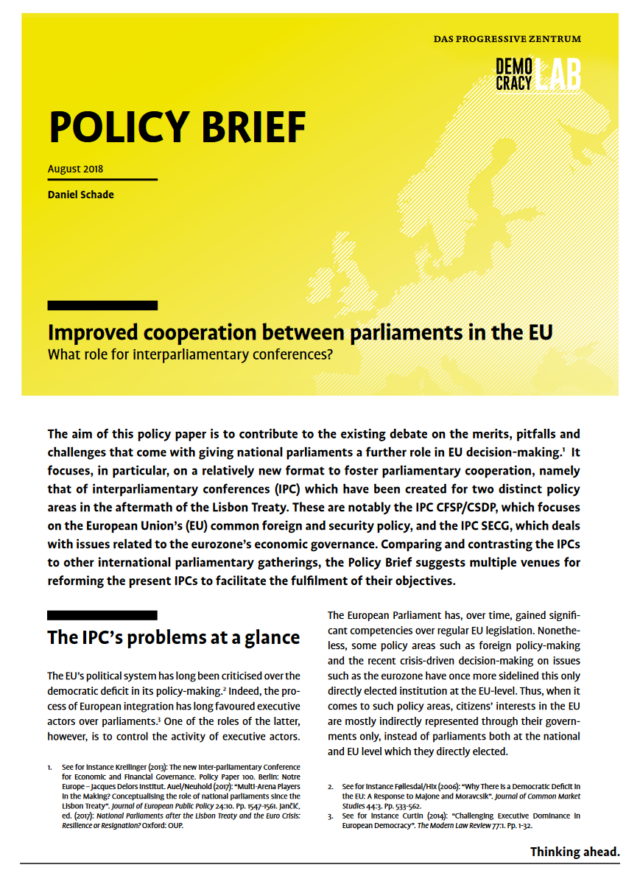Summary
In this Policy Paper, Daniel Schade discusses a relatively new format to foster parliamentary cooperation in the EU: interparliamentary conferences (ICPs). He suggests multiple venues for reforming the present IPCs to facilitate the fulfillment of their objectives.
The aim of this policy paper is to contribute to the existing debate on the merits, pitfalls and challenges that come with giving national parliaments a further role in EU decision-making. It focuses, in particular, on a relatively new format to foster parliamentary cooperation, namely that of interparliamentary conferences (IPC) which have been created for two distinct policy areas in the aftermath of the Lisbon Treaty.
These are the IPC CFSP/CSDP, which focuses on the European Union’s (EU) common foreign and security policy, and the IPC SECG, which deals with issues related to the eurozone’s economic governance. Comparing and contrasting the IPCs to other international parliamentary gatherings, the Policy Brief suggests multiple venues for reforming the present IPCs to facilitate the fulfilment of their objectives.
Daniel Schade made two main recommendations:
RECOMMENDATION 1: BRINGING POLITICS INTO THE IPCS
Option 1: Representation by political parties
- Recognition of the party politics behind EU policies
- Structure IPC representation and recognition around European party families
- Provide formal spaces for party family exchanges
Option 2: Make individual MPs count through committee work
- Introduction of formal committee structures and committee work into the IPCs
- Committee discussions on concrete policy issues and related texts to be adopted
- Create feedback mechanisms for their dissemination in national political processes
RECOMMENDATION 2: SMALLER PROCEDURAL CHANGES
- Coordination of IPC meeting dates with parliamentary agendas
- Set concrete IPC agenda items to be discussed in detail
- Replace the conference conclusions with informal discussion summaries to avoid procedural discussions
- Prioritise small informal and confidential discussions outside of plenary meetings
- Establish means to link MPs from different EU countries to foster the networking character of IPCs
Author

We develop and debate progressive ideas and bring together leading actors who turn thoughts into action. Our think tank’s goal: making the just transformation a reality. ▸ Learn more


